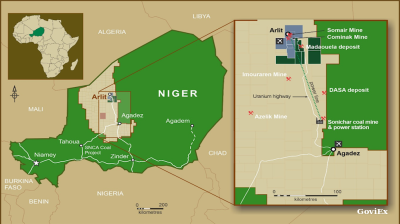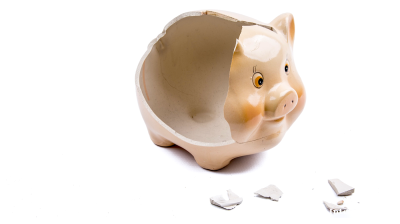At least four countries are already bailing out of commitments to pay the US for weapons supplies for Ukraine, raising a question mark over the level of support Ukraine can expect now that Trump administration has withdrawn.
France, Italy, Hungary and Czechia have all said they will definitely not participate in the weapons-purchase scheme. Nato General Secretary Mark Rutte has claimed that eight countries are willing to pay for the US weapons, but so far only Germany and Denmark have officially confirmed their commitment.
The Dutch Foreign Ministry said that it was considering the possibility of participating in the scheme, but was not committed yet. Rutte said he expects the UK, Sweden and Norway to also participate, but they have not yet commented officially.
However, in a frank admission of the core problem Europe and Ukraine face, the US Permanent Representative to Nato Matt Whitaker admitted on July 17 that Europe is unable to produce the weapons systems that Ukraine needs on the battlefield.
"The reality is right now in Europe they cannot manufacture the armaments required on the battlefield in Ukraine or on the battlefield if there was a potential war in Europe. The US is the premier manufacturer of these weapons systems and they are going to deliver them to Europe and Europe is going to pay for them. It’s a really smart way to go about it," he said on Fox News.
European leaders are unhappy with a deal they say was foisted on them, as they were not informed before the announcement was made at a joint press conference in the Oval Office by Trump and Nato General Secretary Mark Rutte on July 14.
Germany has offered two Patriot systems that it has on order from the US, and Norway a third. Rutte said, one country is prepared to supply 17 Patriot systems, but analysts say that is almost certainly only launchers, not full battery systems.
European allies have a total of 18 full batteries and none of them intend to send their own batteries to Ukraine, although they may be willing to send some of the smaller launchers or the interceptor rockets that are the ammo for Patriot systems. Each Patriot battery costs about $1bn, with interceptor missiles approximately $3.7mn each. Denmark, the Netherlands and Sweden have also confirmed they will also join Trump’s initiative.
EU discontent
European leaders were already miffed by Trump’s “big announcement” on July 14 that promised a large increase in military supplies, if Europe pays for it, and 100% tariffs on any country that does business with Russia if no ceasefire deal is agreed in the next 50 days.
According to several European and US officials cited by Reuters on July 16, the plan appears to have been rushed through and announced without prior notification to the countries expected to be involved.
During his meeting with Trump, Rutte named six Nato countries – Finland, Denmark, Sweden, Norway, the Netherlands and Canada – that were on board with the weapons-purchasing scheme. However, Reuters reported that at least two of these countries had not been consulted before the announcement was made, and others reportedly had not been informed of the details of ahead of time.
Many EU members are unhappy with being given a multi-billion dollar bill while the US pays nothing. Trump also exempted the US from the need to spend 5% of GDP on defence at the recent Nato summit in the Hague.
Speaking for many, EU foreign affairs chief Kaja Kallas said on July 15 the US should "share the burden" of arming Ukraine, after Trump said Europe would pay “100%” of the cost for American weaponry for Kyiv.
"We welcome President Trump's announcement to send more weapons to Ukraine, although we would like to see US share the burden," Kallas said after a meeting of EU foreign ministers in Brussels.
"If you promise to give the weapons, but say that it's somebody else who is going to pay for it, it is not really given by you," she added in a backhanded rebuke of the US president.
Nevertheless, the first badly needed Patriot missiles are already en route to Ukraine from Germany, according to Trump, speaking at Joint Base Andrews in Maryland on July 16. Following Trump’s last phone call with Russian President Vladimir Putin where he said “no progress” had been made, the Russians launched a devastating missile barrage on Ukraine that has only intensified as a missile war gets under way.
Most Nato-funded weapons for Ukraine under the new agreement are part of a Biden-era package, either in storage or have been recently produced, so they are ready for immediate shipment, including Patriot air defence systems, missiles and ammunition. However, it remains unclear just what weapons system will be delivered to Kyiv, or when exactly they will arrive.
Nay sayers
Hungarian Prime Minister Viktor Orban has said from the start that he will not support the EU efforts to either resupply Ukraine or accelerate its accession to the EU. Hungarian Minister of Foreign Affairs Péter Szijjártó confirmed that Budapest would not participate in the US weapons programme.
Czech Prime Minister Petr Fiala announced on July 16 his country will not participate, citing the need to focus on other projects such as supplying Ukraine with ammunition. This stance could change, as pro-Russian candidate Andrej Babis has said the same day that he would halt the current government’s plans to buy shells if he becomes prime minister in upcoming elections.
France and Italy also declined to join, citing increased defence spending and a lack of funds.
France’s refusal comes as a surprise, as it is a leading member of the coalition of the willing and French President Emmanuel Macron has been one of Ukraine’s most ardent supporters. However, the French government is wrestling with a budget crisis and is desperately short of money at the moment. France’s public deficit reached 5.5% of GDP in 2023, significantly above the EU’s 3% limit, and placed under excessive deficit procedures (EDP) by Brussels. The government has failed to rein in spending while also trying to maintain social services and invest in defence and green transitions.
France has chosen to prioritise its domestic defence sector development instead and aims to double its 2017 defence budget by 2027, according to Macron. Paris also seeks to support European manufacturers that have already supplied Ukraine with missile defence systems and other military equipment.
Italy is also facing money problems and has also ruled out buying US arms for Ukraine, though it will maintain military assistance to Kyiv. Representatives of the Ministry of Defence told La Stampa that the government "has never discussed purchasing American weapons for Kyiv". The publication also reported that budgetary constraints mean Italy has planned only one major US arms purchase in the next decade: a batch of F-35 fighter jets for domestic use.
Underlying European reluctance to spend huge amounts of money on buying US-made weapons is growing concerns with the EU’s overreliance on the US defence sector at a time when Brussels wants to see its own defence sector develop. European Commission President Ursula von der Leyen outlined Europe’s programme in her ReArm speech (video) on March 4.
The lack of money to pay for US arms led Polish Foreign Minister Radoslaw Sikorski to argue that the cost of arming Ukraine should not fall on European taxpayers but be covered by Russia's $300bn of frozen assets instead. Europe remains very reluctant to seize this money, afraid it will undermine the creditability of the EU banks system and the euro.
Sanctions bluff
As bne IntelliNews reported, experts are sceptical that the 100% tariffs can be made to work as they would land largely on China and India, now Russia’s biggest customers for crude oil exports, and neither country has participated in sanctions to date.
The threat of the first new sanctions on Russia by the US since Trump took office in January comes as the EU is struggling to get its eighteenth sanctions package through, which has been blocked by Slovak Prime Minister Robert Fico. Slovakia controversially signed off on a new gas deal with Russian state-owned gas giant Gazprom in the first month of the war for piped supplies of gas until 2034. Fico is arguing that Bratislava would be liable for billions of dollars in compensation if it breaks the contract and is refusing to pass the eighteenth package until he gets an exemption to the plan to end all Russian gas imports by 2028. So far, the European Commission has refused to accommodate him.
Fico’s ally in supporting Russia, Orban, has overseen a 26% increase in purchases of Russian gas over the first five months of the year, the most in the EU, and also has no intention of reducing Russian supplies.
At the same time, the EU is locked into its own tariff war with the White House after Trump announced a whopping 30% tariff on all European goods. Brussels had been holding out for the minimum 10% rate and was lobbying for exemptions for many key sectors like cars and chemicals.
The row underscores the growing fragmentation within the EU and disunity with the US to continue supporting Ukraine as fatigue with the cost of the war, running at an estimated $100bn a year, builds.
News

US suspends strategic dialogue with Kosovo amid political deadlock
Washington singles out Kosovo's caretaker PM, leftwing nationalist Albin Kurti, who has a strained relationship with the Trump administration.

Lukewarm support for Polish UN vote condemning Russian drone incursion
Only 46 out of 193 UN member states signed a joint UN declaration on September 12, denouncing Russia’s alleged involvement in a drone incursion into Polish airspace two days earlier.

GoviEx, Niger extend arbitration pause on Madaouela uranium project valued at $376mn
Madaouela is among the world’s largest uranium resources, with measured and indicated resources of 100mn pounds of U₃O₈ and a post-tax net present value of $376mn at a uranium price of $80 per pound.

Brazil’s Supreme Court jails Bolsonaro for 27 years over coup plot
Brazil’s Supreme Court has sentenced former president Jair Bolsonaro to 27 years and three months in prison after convicting him of attempting to overturn the result of the country’s 2022 election.



